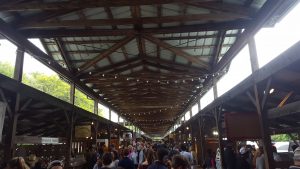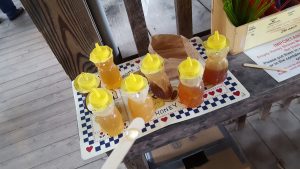Last week I attended the table talk about immunotherapy. During this talk I was able to learn about this interesting type of treatment that seeks to induce, enhance, or suppress or the body’s own immune response to fight diseases it sometimes gets tricked by. One very popular disease researchers want to implement this form of treatment is for cancer. Because there are numerous types of cancers, which also vary person to person, creating a common treatment for all cancers is not likely, but it has been implemented for the treatment of some cancers, including lung cancer, leukemia, and melanoma.
Immunotherapy, or biologic therapy, uses substances made by the body or in a lab to reinforce the patients own immune response. Immunotherapy can help the body slow or stop the growth of tumors, and even make it better at getting rid of cancerous cells.
Cancer affects a great many people, and it is always interesting to see how the treatment for this disease is changing due to all innovations in the field. Immunotherapy is a growing solution for treatment, because it utilizes the body’s own immune system in fighting disease, which causes fewer negative consequences, unlike with most of the popular treatments, especially chemotherapy. I look forward to watching this treatment increase in effectiveness.



